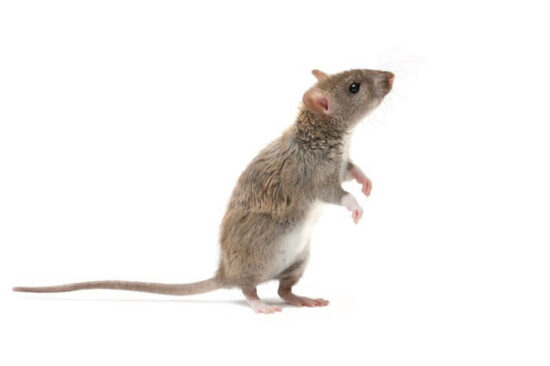There are certain scents that mice hate, and it’s important to know what they are if you want to keep these rodents away. This knowledge will allow you to deter these pests without having to use harsh or expensive methods.
This guide lists all the smells that mice hate, so you can use them to your advantage inside your home.
What Scents & Smells Do Mice Hate?
Mice are notorious for rummaging in filth and grime. They won’t hesitate to go places that humans find repulsing. As a result, it’s hard to imagine any smell that would offend a mouse.
Fortunately, they do have their limits! Here are some scents that will keep mice away.
1. Vinegar
Vinegar is a pantry staple that’s cheap and super easy to get your hands on. If you’re a fan of sour-flavored foods, you’re all too familiar with how intense vinegar can get. From standard white vinegar to apple cider varieties, it’s a liquid that can irritate the nose!
This is an extremely powerful scent that mice hate. It’s an overwhelming aroma that most rodents don’t want to get near.
To utilize vinegar to your advantage, create a solution that you can spray everywhere. For the best results, use white vinegar. Apple cider vinegar can certainly do the trick, but white vinegar has antibacterial and antimicrobial properties.
It can clean your home as you deter mice. Plus, there’s no risk of staining!
Mix equal parts of water and vinegar. You can make a stronger solution by using less water. The less diluted it is, the more powerful it’ll be against mice.
Spray the mixture on potential access points or known hangout spots. You can also use it as an all-natural cleaner to leave the scent everywhere.
2. Peppermint Oil
Peppermint is a rich and refreshing flavor that many people adore. It’s used in everything from sweet treats to fancy cocktails!
The signature smell is strong enough to clear your sinuses and get your eyes watering. Unsurprisingly, it’s a smell that mice hate!
Peppermint oil is an extraction that comes from the plant itself. You can purchase the essential oil in many stores. It has the same menthol compounds but in a more concentrated form.
Add a few drops to a spray bottle with clean water. Doing so will dilute the oil a bit while making it easier to apply to various rooms around the house.
If you prefer to use a higher concentration, soak some cotton balls. Put the soaked balls in areas where you have encountered mice. The aroma will permeate for much longer, creating a no-go zone with a scent that keeps mice away.
3. Chili Pepper
Are you a fan of spicy foods? Chili peppers contain a compound called Capsaicin. It’s responsible for delivering the heat.
Not only does it cause a physical response on your tongue, but it can also wreak havoc on the sinuses and olfactory glands. The same effect occurs with mice. It’s an offensive aroma that’s one of the most common smells that mice hate.
Use this to your advantage! Pick up some chili pepper oil, dry flakes, or ground-up powder. Most forms of pepper will have the same compounds regardless of how it’s processed.
Like peppermint oil, you can dilute the chili oil with some water. Give it a good shake, and you’re ready to spray it around your property. For dry forms of chili, sprinkle it around as-is.
Be extra careful when handling pepper products! You may want to consider reapplying regularly as well to maintain protection.
4. Mothballs
Mothballs do much more than keep insects away (like roaches). They also have a powerful scent that mice hate.
These cheap little balls are surprisingly effective because they contain Naphthalene. When you first buy them, the chemical is in solid form. It’s safe enough to handle as you drop them in places where rodents frequent.
Try putting them in corners, crawlspaces, or any other void that mice might creep through.
Once there, the chemicals in the mothball will slowly turn into vapor. The vapor is hazardous, so you want to make sure that the mothballs aren’t anywhere near pets or children.
The chemicals can cause kidney and liver damage. Long-term exposure could also lead to debilitating health issues for mice. Whether or not they’re aware of those risks is up for debate, but we do know that mice will instinctively avoid the smell of the vapors.
5. Mint Toothpaste
Believe it or not, toothpaste is a valuable tool to have in your fight against mice! This technique is a relatively new trend, but it has some weight to it. The magic behind toothpaste is the minty flavor.
Like the peppermint oil we went over earlier, toothpaste usually has menthol compounds in it. That’s the stuff that creates the cooling sensation and intense sensation in your nose.
Mice hate the smell of any mint, so toothpaste can do a lot to keep them away. The best part is that toothpaste is pretty easy to use. There’s no need to dilute it or apply it to a cotton ball.
Just smear it on baseboards, doorways, and voids. The product works well indoors and out. It also sticks just about anywhere, so you can use it to treat even the most hard-to-reach areas.
6. Cedarwood
Cedarwood gives off a fantastic smell. It’s just woodsy enough to remind you of Mother Nature, but it’s not too powerful to overwhelm your senses.
Of course, this is actually a smell that mice dislike. In fact, the effects of cedarwood can be downright lethal for rodents. It contains natural effluvium that’s toxic to these rodents.
The oil that seeps out of cedarwood is entirely safe for humans, but mice know to avoid it.
You can pick up cedarwood essential oil and use it throughout your home. It works wonders in oil diffusers. Many like to create all-natural air fresheners as well by mixing the oil with some water.
Raw cedarwood and processed cedarwood discs are available, too. The latter product is often sold in stores as a closet deodorizer. Either way, both give off a woodsy smell that can keep mice away.
7. Cloves
Cloves are aromatic flower buds that add a strong kick of flavor to culinary dishes. You can usually find them in the spice aisle of your local grocery store. Clove oil is available, too.
Take one whiff of cloves, and it’s pretty apparent why it’s a scent that mice hate. The smell is super intense. It’s so potent that lovers of this spice can instantly recognize it.
Try tossing some dry cloves around your property. Whole cloves are diluted and less intense before adding them to a dish, but they can still produce a smell that most mice will avoid.
If you want something more robust, go for clove oil! Like most essential oils, the smell is super concentrated. Dilute it with water or soak a cotton ball. Many homeowners like to mix it with other essential oils to create the ultimate rat-repelling cocktail.
8. Cinnamon
Here’s another spice you might have in the back of your pantry. Typically used for holiday desserts, the signature cinnamon smell will help keep mice away.
You have a few different ways to use cinnamon. If you have some whole sticks on hand, drop them in places where mice might try to roam around. You can even put them in areas with potential food sources, such as your cupboards, pantry, or garbage can.
Dry cinnamon powder is available, too. If you prefer to use that, apply it like you would chili pepper. Just sprinkle it around and let the resulting smell work its magic.
9. Eucalyptus
Eucalyptus oil is another effective essential oil to have in your arsenal. This one comes from the eucalyptus tree.
The oil reportedly has a strong medicinal effect. When applied topically, it’s said to soothe muscles and alleviate aches.
This oil is a distinct smell that will keep mice away. It’s not quite minty, but it has a similar effect that can clear your sinuses. As you can imagine, mice aren’t too fond of it!
Use the oil like you would any other essential oil product. It works well as a spray or on its own.
10. Tea Bags
If you’re a regular tea drinker, you’re probably throwing out some valuable mice-repelling products! Instead of tossing the tea when you’re done, put those old bags to good use!
There are countless different tea varieties out there, and some will have a more significant impact on mice than others. That said, most tea mixtures are filled with a slew of spices and scents that mice hate.
Dry tea isn’t super potent. It gives off a slight smell, but it’s nowhere near as intense as the aroma that comes after steeping. Let the tea sit in hot water so that the oils can permeate.
Instead of tossing the bags in the bin, put them around the house and yard to keep your property mouse-free. Another way to utilize tea is by steeping a super-concentrated tea. After it cools, you have a powerful and aromatic repellent spray!
11. Ammonia
Ammonia is an offensive smell for just about anyone. It’s a colorless and highly irritating gas. Ammonia-based cleaning products are widely available. The same goes for ammonia fertilizers and gardening solutions.
Quick Tip: No matter what form it comes in, ammonia is a dangerous substance to be around. It can burn your skin and harm your respiratory system. As a result, you need to be extra careful if you plan to use this smell to deter mice.
Why do mice hate ammonia? It mimics the compounds found in animal urine. Mice are pretty vulnerable to predators, so they avoid the smell at all costs.
On top of that, the liquid solution is unpleasant on its own. The gas gives off potent vapors that quickly irritate the senses. Inhaling it can burn the lungs. Those effects apply to both mice and humans, so it’s a good idea to wear some protection when handling it.
To use the ammonia, soak some cotton balls or old rags. Place them strategically to create an invisible barrier that rats will do their best to avoid. As always, avoid putting the ammonia-soaked items in places where kids or children can get near.
If there’s any scent that you need to be cautious with, it’s ammonia. Wear protection and consider all worst-case scenarios to stay safe.
12. Dryer Sheets
For many, dryer sheets are one of the best parts of doing laundry! Not only do they help reduce static, but they have a wonderful fragrance infusion that leaves clothes smelling fresh.
Curiously, mice seem to hate the smell of dryer sheets! While the exact reason for this repulsion is unknown, most agree that it’s because the smell is very concentrated. The smell dilutes a bit as it spreads across an entire load of laundry.
However, the sheet itself is surprisingly intense.
Place dryer sheets in any area mice might go. The great thing about the product is that it’s easy to use. There’s no need to worry about sprays, spices, or harsh chemicals. Just open up a box and pack individual sheets in every nook and cranny you find.
Your house will smell extra fresh, making it undesirable for filthy mice.
13. Cayenne Pepper
The last smell worth spreading is cayenne pepper. The effects of this spice are similar to chili pepper. It’s chock-full of that signature capsaicin compound. So what’s the difference?
Cayenne pepper is far more intense. It’s about eight times more intense than standard chili flakes, making it a powerful scent that will keep mice away.
Sprinkle dry cayenne anywhere that mice might go. Pay special attention to cracks, holes, and voids. You can also apply the powder to crawl spaces or basements where mice like to hide.
Like before, be careful when using cayenne. The last thing you want is to get the spice in your nose! Save the pain and discomfort for the pests.
The Importance of Keeping Mice Away with Scents
Although mice have a somewhat adorable reputation in cartoons, they are one of the most frustrating pests to deal with in the real world. These critters belong to the Rodentia family, which is the largest group of mammals in existence. While they look similar to rats, mice are much smaller and nowhere near as aggressive.
Even still, you don’t want to deal with mice on your property. Natural-born troublemakers, mice have a knack for wreaking havoc in and outside of the home.
Don’t let this mammal’s small size fool you. Mice have relatively powerful jaws and durable teeth that are capable of getting through a myriad of materials. They’re known to chew through electrical wiring, vinyl siding, wooden wall framing, fiberglass, and more.
These animals won’t hesitate to leave a path of destruction wherever they go. The damage they cause can end up costing you thousands in repairs.
On top of all that, mice are pretty gross. They’re known carriers of many different diseases and parasites. The critters contaminate every surface they walk on.
Plus, they carry fleas, ticks, and a host of other parasitic pests you don’t want in your home. While mice usually don’t bite humans, they can still spread disease through their urine, droppings, and saliva. Mice are the epitome of filth and can quickly turn your comfortable home into a nightmare of gross.
Finally, there’s the issue of nesting. Once mice find a nice place to settle down, they will start multiplying like no tomorrow! A small group can quickly turn into an out-of-control infestation.
Controlling the pest population is paramount to avoid any unruly issues. Fortunately, there are many control methods to try out.
While you could resort to harsher methods, deterring mice with scent are considered by many to be a much better option.
Rodent poisons, bait traps, and chemical-based deterrents pose a significant safety risk. There’s a long history of pets and children falling ill after mistakenly eating poison intended for mice. Some even end up dying.
Having poison in the house is just asking for trouble. Furthermore, the after-effects of poisoning the mice could be troublesome. There’s nothing worse than trying to track down the location of smelly, decaying mice that died behind your walls.
Physical traps pose a similar problem. We’ve all seen glue-based products and traditional spring-loaded snap traps. They’re fully capable of killing mice, but they can create a dangerous environment and aren’t always the most effective.
Scent-based repellents are a far better choice in most instances. Mice have a robust sense of smell that surpasses the capabilities of humans. It’s how they manage to find food and make their way into homes undetected.
Like any other animal, mice have smells they love and hate. With the right scent in your arsenal, you can use the mammal’s most valuable asset against it. Assault their senses, and most mice will look elsewhere to cause trouble.
Conclusion
As you can see, you have plenty of options when it comes to scents that keep mice away. Simply choose the ones that are most convenient for you and get started!
Let us know if you have questions about any of the smells that mice hate. The way you use them matters a lot, so if you’re unsure you can always ask us.


